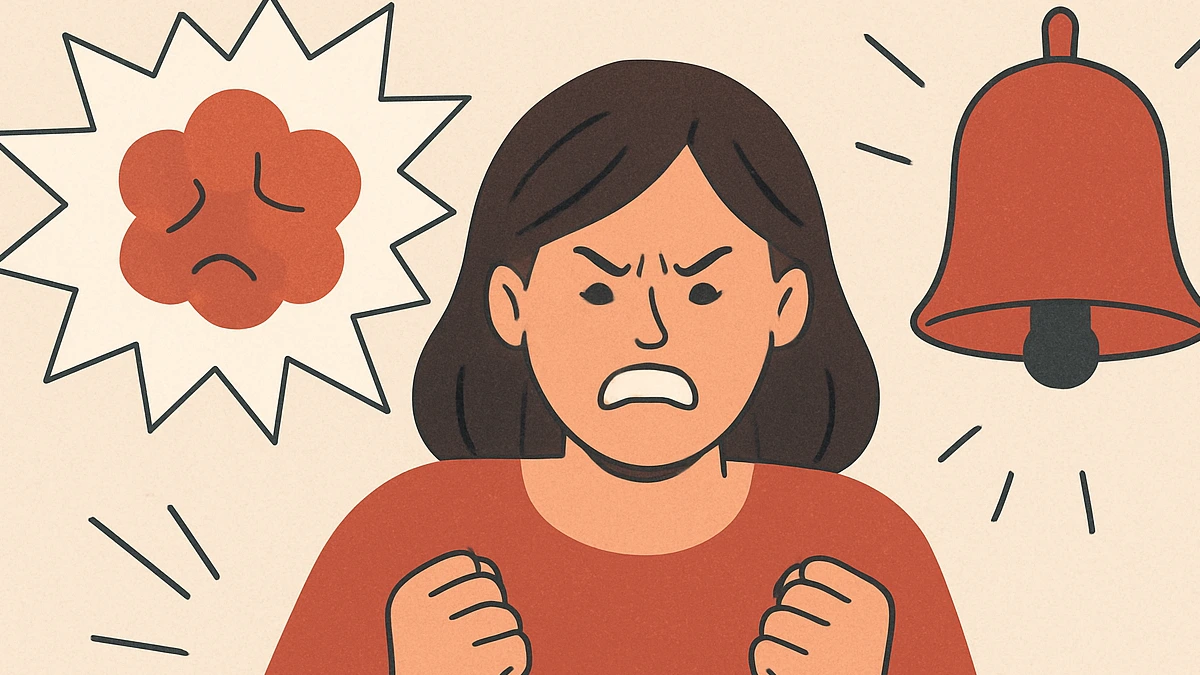Assess your ability to manage anger and conflict with your partner using this free psychology-based quiz.

Anger Management Scale
Do you lose your temper with your partner a little too easily? Take the test to find out.
It's completely normal to feel anger, but when that anger becomes intense, frequent, or misdirected—especially in your close relationships—it can be damaging to your well-being. Unmanaged conflict can manifest as anything from frequent shouting matches to passive-aggressive behaviors or even self-destructive habits. Over time, unchecked anger leads to excessive conflicts, breakdowns in trust, and can severely impact both your mental and physical health. This is why understanding your conflict management style is a crucial skill for personal growth and maintaining a high quality of life.
The Anger Management Test is an assessment designed to help you quantify your tendencies in heated situations, particularly concerning how you interact with your partner. By focusing on your behavioral patterns—such as raising your voice, escalating arguments, or placing blame—this questionnaire can highlight the specific areas where your conflict issues might be showing up most often. Gaining this self-awareness is the essential first step towards taking control of your emotional responses and fostering healthier communication.
You may also be interested in taking our Passive Aggression Scale or our Ineffective Arguing Inventory to get a more complete picture of your relationship style.
Frequently Asked Questions
- How long does this quiz take?
- It takes about 3-4 minutes to complete.
- Are my responses private?
- Yes, all Anger Management Scale answers are anonymized and confidential.
- Can I take this test more than once?
- Yes, you can retake the test any time to see how your Anger Management Scale results may have changed.
- Will this test diagnose me with an anger disorder?
- No. This Anger Management Test is a self-assessment tool designed for awareness and is not a substitute for professional diagnosis or clinical advice.
- Can my results help me improve my relationship?
- Yes. Your results will highlight your current conflict style, providing the self-awareness needed to begin making positive changes in your communication and emotional responses with your partner.
Anger Management Scale: Take The Test
References
Disclaimer
This scale is designed for educational purposes and is not a substitute for professional diagnosis or treatment.

